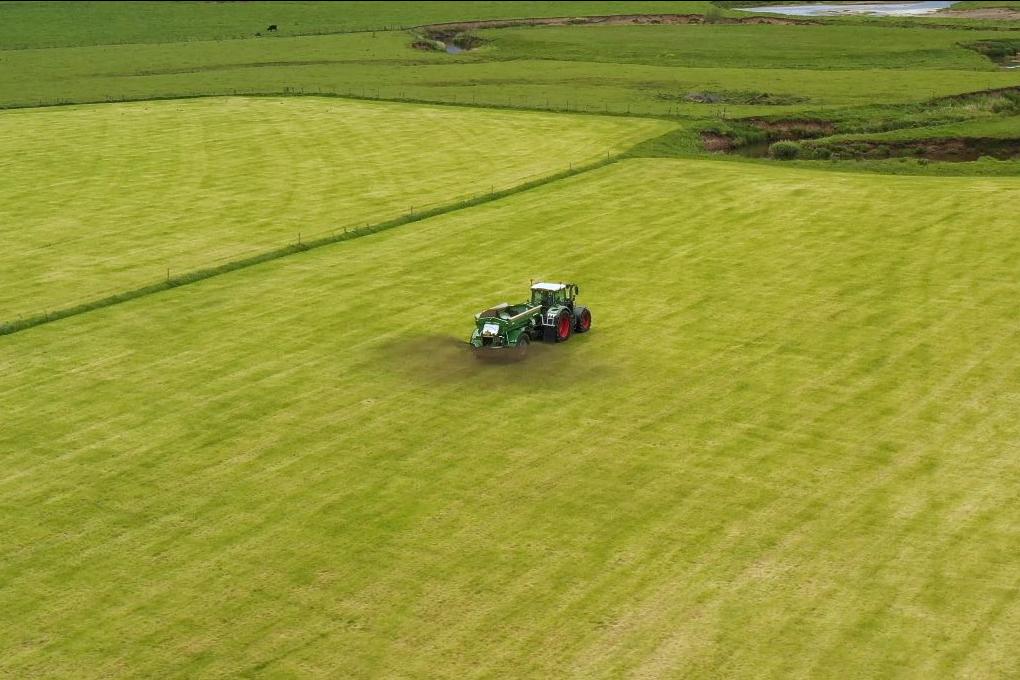
A tractor spreads crushed basalt rock on one of Undo's enhanced rock weathering test fields. (Image courtesy of Undo.)
A climate solution that involves grinding up rocks and spreading them over farmland might sound unconventional, but enhanced rock weathering is gaining ground as a promising carbon removal strategy.
The technique, which accelerates a natural geological process, was recently spotlighted in the XPrize Carbon Removal competition, where the United Kingdom-based startup Undo received $5 million for its work applying enhanced rock weathering across croplands in Canada. In a trial in Seeley’s Bay, Undo removed 1,209 tons of carbon dioxide over the course of a year, enough to beat out more than 1,300 other entries from 88 countries.
“We’re harnessing the natural rock weathering cycle that’s been stabilizing Earth’s climate for millions of years,” said Jim Mann, CEO of Undo. “We’re just speeding it up.”
Here’s how it works. When rain falls, it picks up carbon dioxide from the air and becomes slightly acidic. When the rain lands on certain types of silica-based rock, like basalt, it causes a slow chemical reaction that breaks down the rock. This process captures carbon and carries it into rivers and oceans, where it can stay safely locked away for thousands of years.
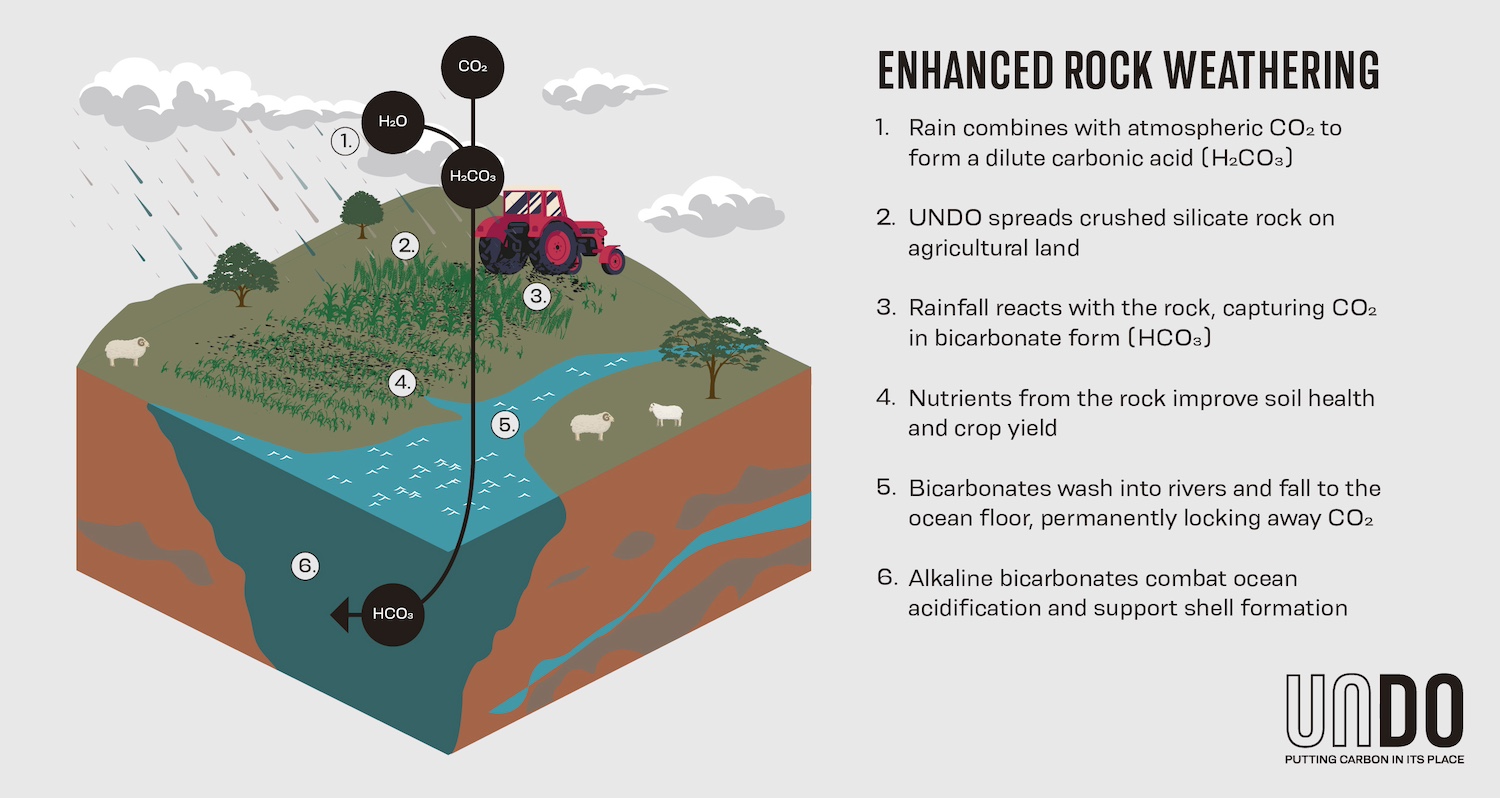
Enhanced rock weathering replicates this process at speed and scale. By crushing specific types of rock into a fine powder and spreading it across agricultural land, practitioners can massively increase the surface area available for these rainfall-induced chemical reactions. The result is carbon dioxide pulled from the atmosphere and stored for the long term.
The benefits go beyond carbon sequestration, Mann said. Farmers using the method may also see increased crop yields and healthier soil. “Basalt is full of beneficial minerals like calcium, magnesium, potassium,” he said. “It raises the pH of acidic soils, balances nutrients, and reduces input costs for farmers.”
Undo provides the crushed rock to farmers free of charge, and it has never recorded a drop in crop yield in any of its trials, Mann said. In return, the company retains the carbon credits generated from any verified carbon removal, which it sells to corporate buyers including Microsoft, British Airways and McLaren Racing.
“Our model is community-powered carbon removal,” Mann said. “We’re creating value up and down the supply chain, from the quarry operators selling us byproduct, to the local haulers and spreading contractors, to the farmers who see a 3 to 15 percent yield increase.”
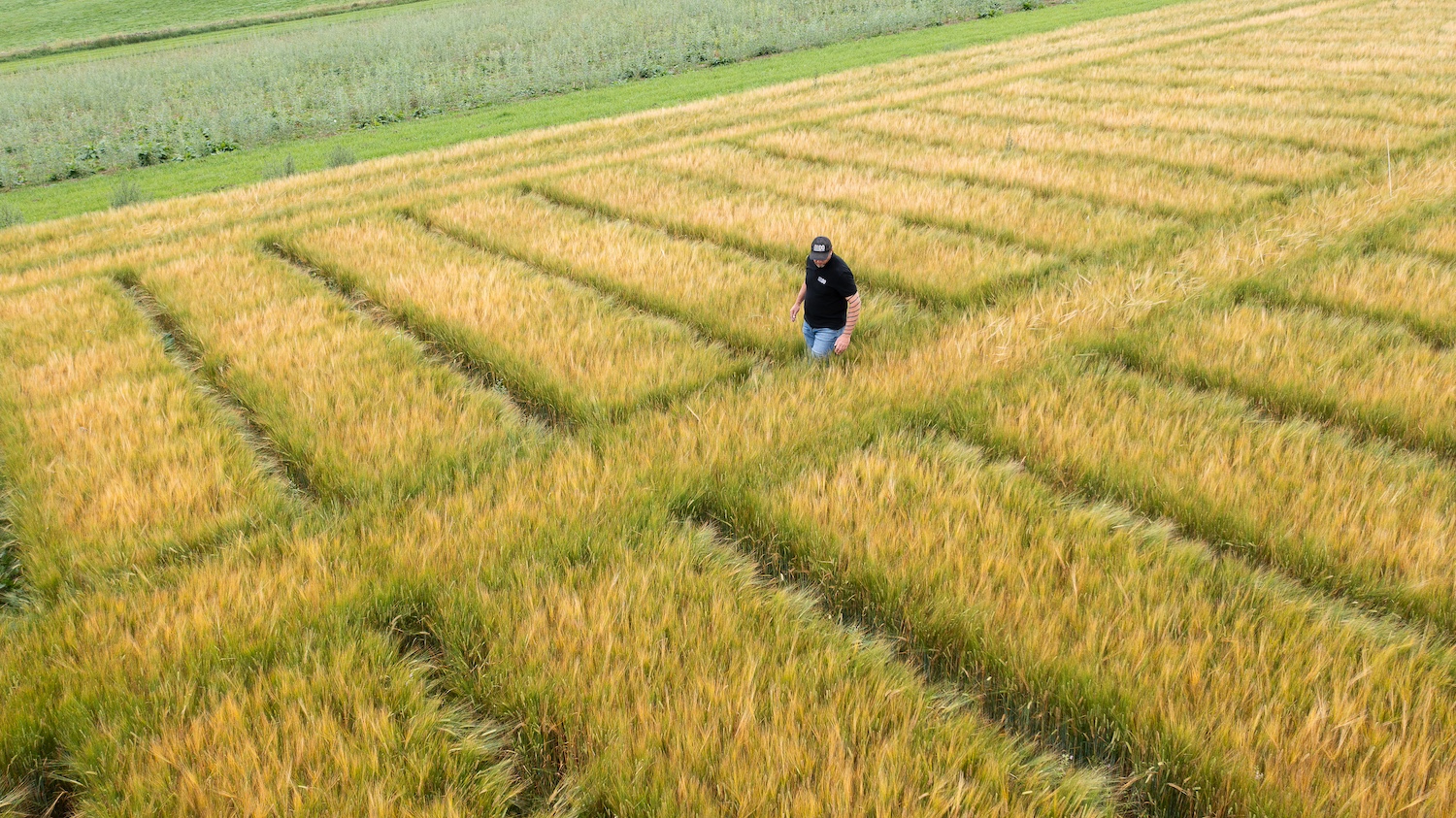
There are challenges to scaling enhanced rock weathering. The largest obstacle is geography, Mann said. The minerals needed for the process aren’t available everywhere, and hauling crushed rock long distances can be costly, both financially and in terms of emissions. “There’s a real need to match mineral sources with agricultural land as closely as possible,” he said. “We’ve done a lot of geospatial mapping to find the sweet spots.”
The energy and emissions associated with mining, grinding and transporting rock are also a concern, though Undo sources much of its material from existing quarry waste, reducing the need for new extraction.
Mann said he is optimistic about the potential for other environmental and agricultural benefits, too. “We’ve seen increases in soil health and worm counts,” he said. “In some locations, there’s evidence of improved drought resilience and pest resistance, possibly linked to silica [from the rocks] improving cell wall strength in plants. But we still have more to learn.”
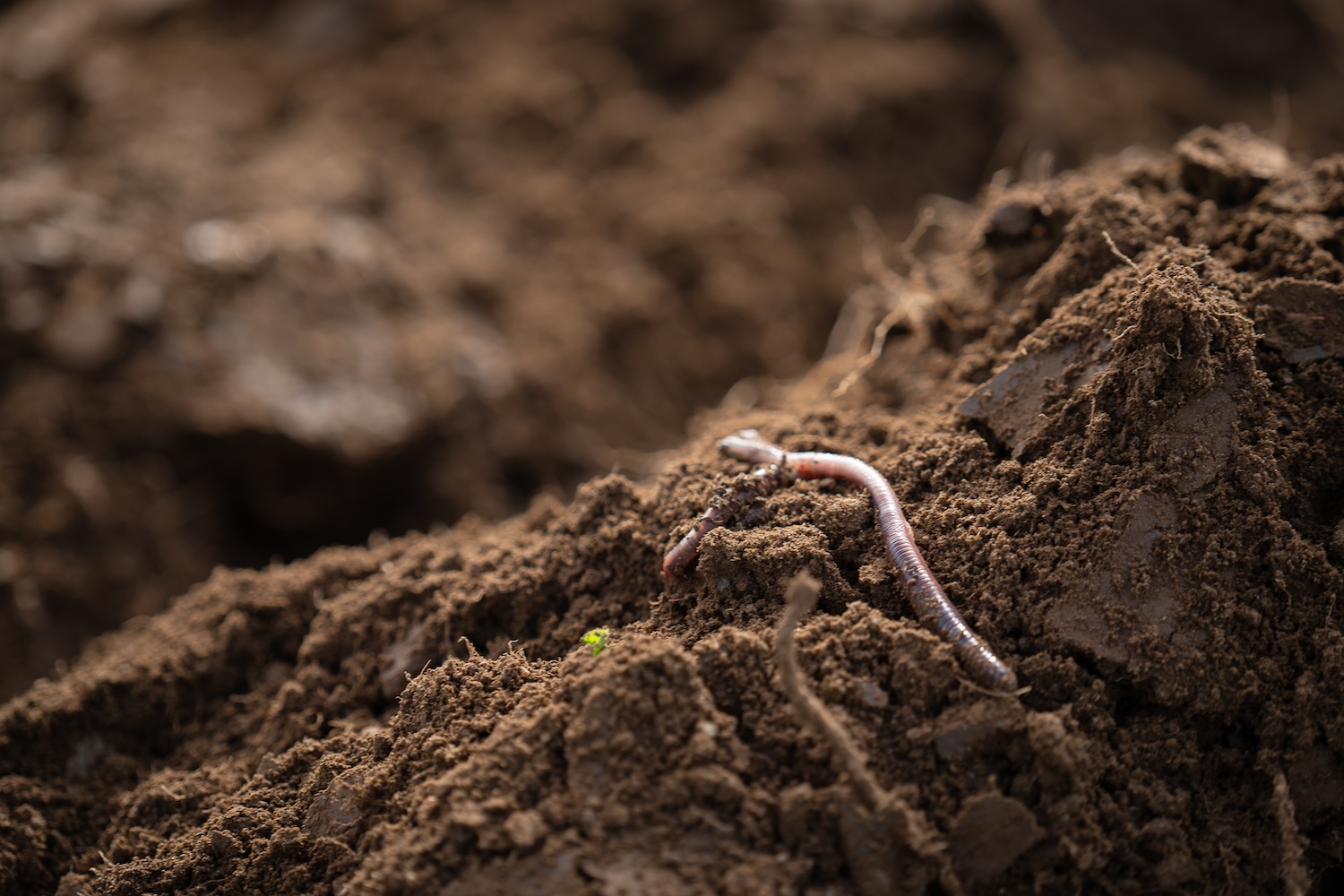
Despite the unknowns, the scientific community is increasingly optimistic. Carbon dioxide removal at a scale of billions of tons per year will be required to meet climate targets, according to the Intergovernmental Panel on Climate Change. Natural processes like rock weathering already remove about 1 billion tons annually, a figure that enhanced rock weathering could potentially increase by four to five times if deployed widely, Mann said.
“It’s one of the most scalable, permanent carbon removal solutions out there,” he said. “And it uses infrastructure we already have: tractors, haulers, farmland. That gives us a huge head start.”
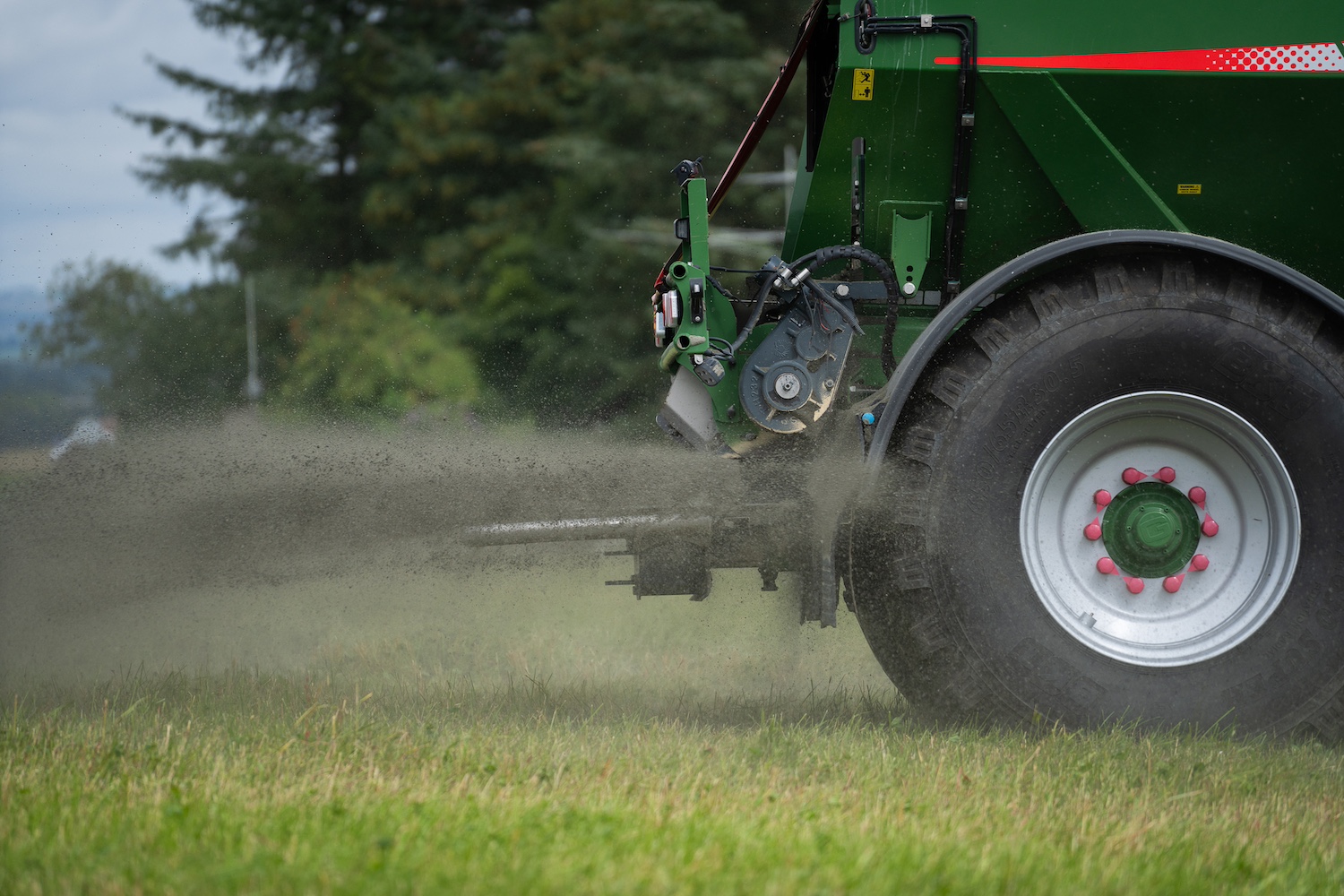
Undo is currently focused on building out its operations in Canada and the U.K., with an eye toward expanding into other temperate regions with stable political and economic systems. “We need to prove this works at scale in predictable environments first,” Mann said. “Then we can adapt and bring the benefits to smallholders and developing regions.”
Backed by climate investors and major corporations looking to offset their emissions with verifiable, science-backed methods, Undo is working to bring enhanced rock weathering from a fringe concept into mainstream carbon removal strategy. “We’ve waited long enough for governments to act,” Mann said. “Now it’s time for communities, farmers, and businesses to step up and be part of the solution.”
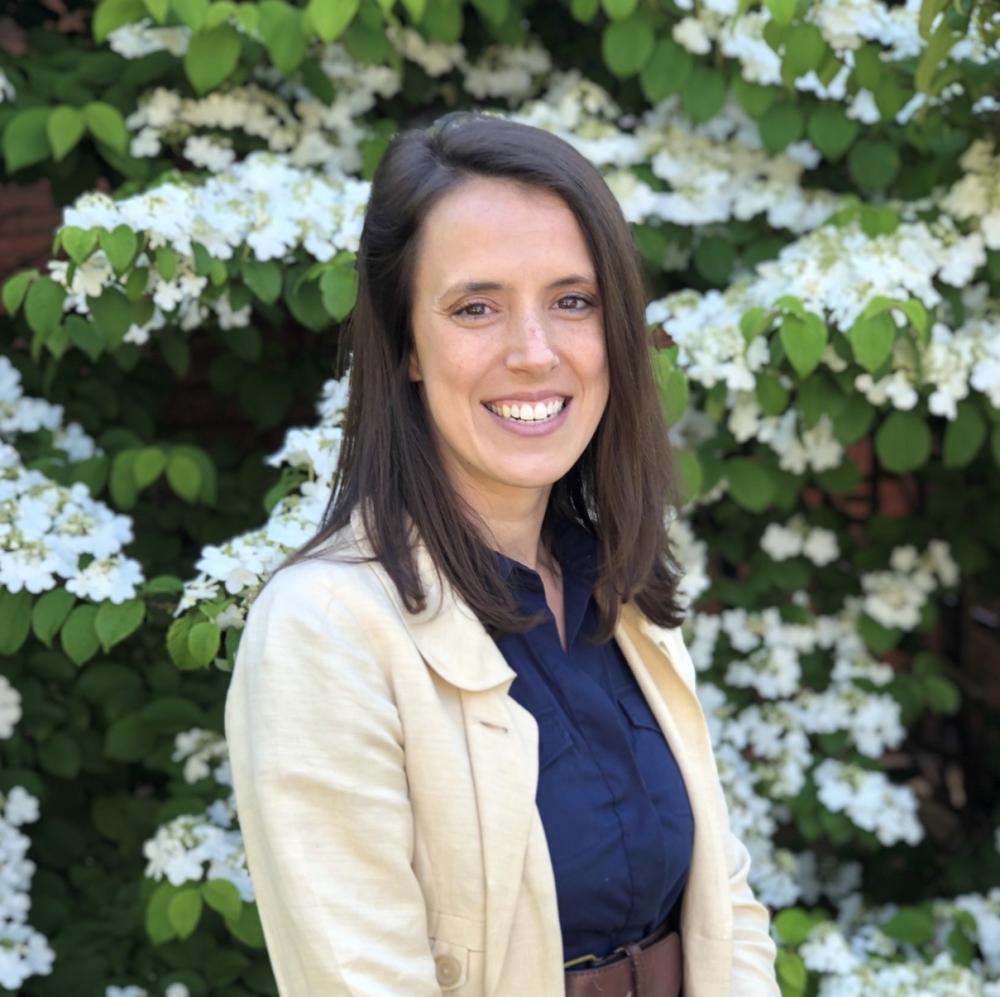
Mary Riddle is the director of sustainability consulting services for Obata. As a former farmer and farm educator, she is passionate about regenerative agriculture and sustainable food systems. She is currently based in Florence, Italy.














